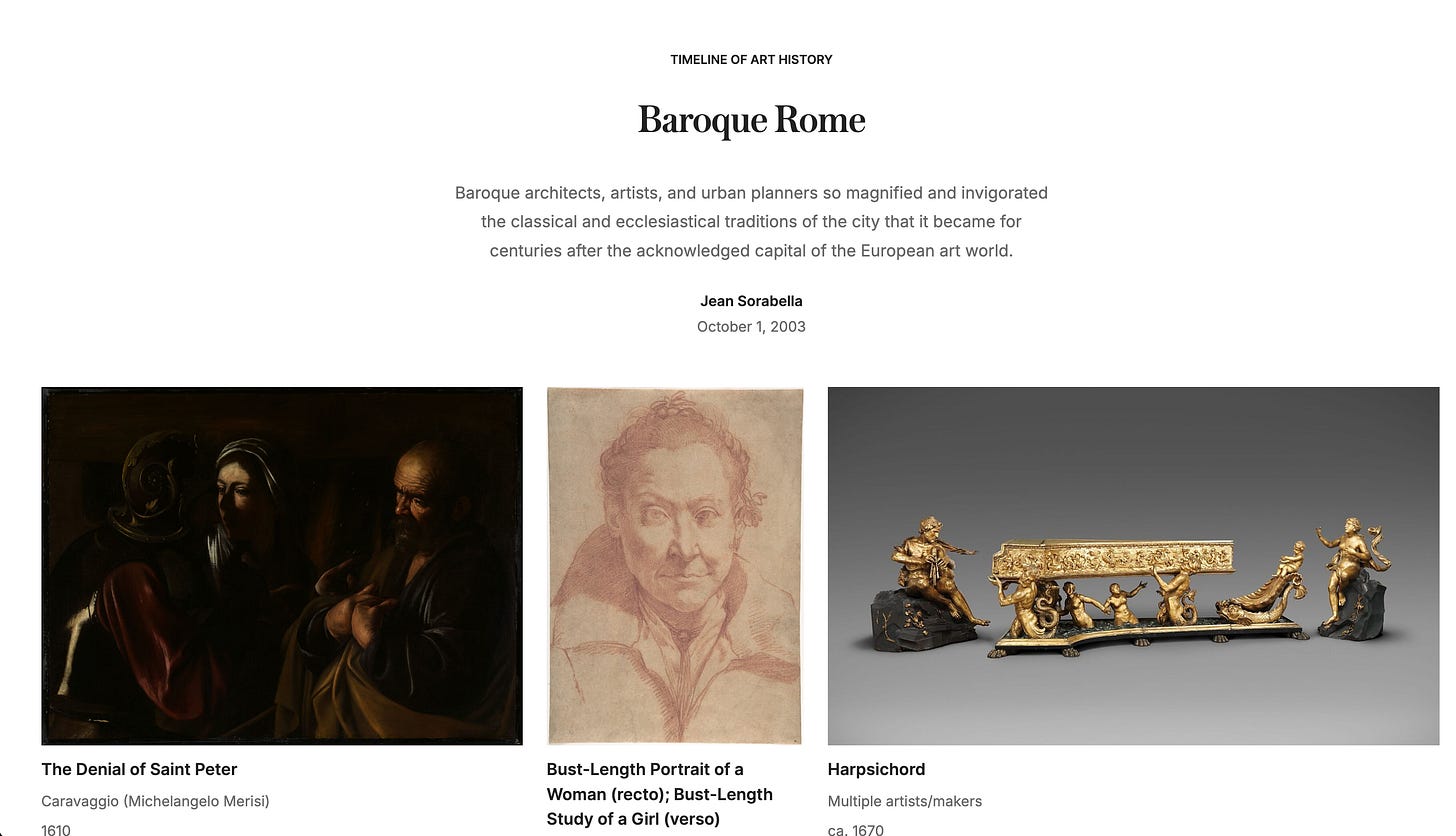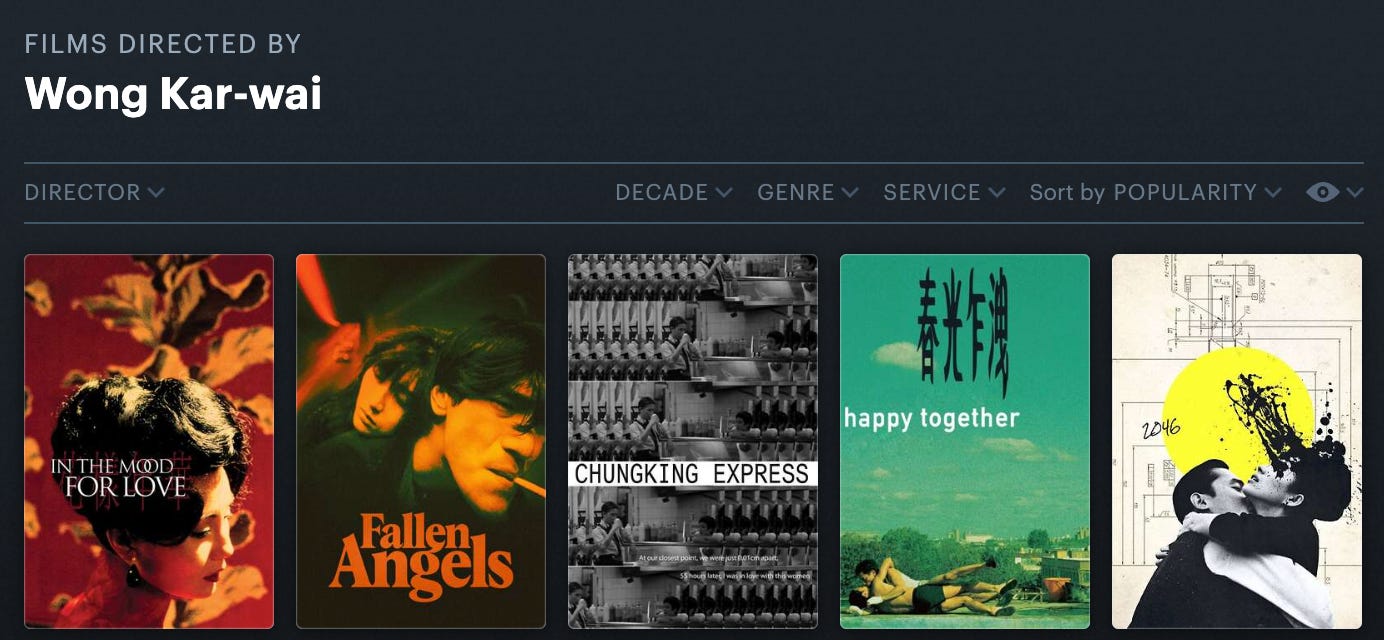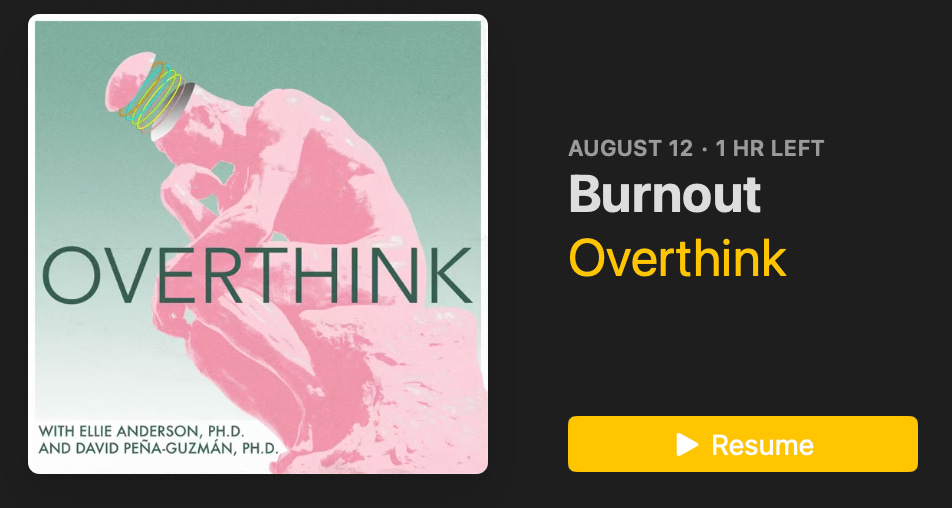how to get smart again: weekly syllabus [september week 1]
books, lectures, essays, podcasts, movies, and video essays for the week
I have this superstition where I feel like I need to have a really excellent and productive month when the first of a month falls on a Monday. Guess what day the first of September falls on? Anyway, I have a train wreck of a week (or year, in my case), so I defaulted to what I do best: obsessively planning my free time. It’s soothing to me, knowing that I can spend an hour or so planning all my free time so my brain can always be on autopilot for the week, so that no stray thoughts or seeds for rumination plant themselves in the folds of my brain and make me have a breakdown. I never said I wasn’t neurotic, but I’ve recently heard it’s an endearing quality of mine.
I have way more free time on my hands these days, so in my continued attempt to fix my attention span and gradual short form content induced brain-rot (and hopefully distract my brain which always spirals when I have any sort of free-thinking time during a depressive episode), I thought I’d plan a weekly syllabus. Here’s a collection of books, essays, podcasts, movies, video essays, and online lectures I’m interested in looking at this week! I planned this thematically by each category.
Hope you can follow along so I can discuss (or post a wrap up at the end of every week)!
playlist of the week
It’s sort of fall but not really but still sort of fall because it’s technically September…I’ve defrosted some of my cold weather playlists while blasting the AC in sweltering humid heat.
books
A week for fiction. Main focus this week are books that are in short vignettes. I’ve been enjoying these a lot lately because I feel like they’re low commitment while never failing to be vividly described and rich with detail. I started reading As I Lay Dying earlier this week and fell in love with it, so I want to finish that and read more books told in vignettes throughout the week. The Employees is a very short read comprised of fictional statements from the employees aboard a ship, and Dept of Speculation is a well loved reread; a quiet, moving meditation on love, marriage, motherhood, and the fleetingness of being human.
As I Lay Dying by William Faulkner
page count: 288
Faulkner’s harrowing account of the Bundren family’s odyssey across the Mississippi countryside to bury Addie, their wife and mother. Narrated in turn by each of the family members—including Addie herself—as well as others; the novel ranges in mood, from dark comedy to the deepest pathos.
The Employees by Olga Ravn
page count: 125
The Employees reshuffles a sci-fi voyage into a riotously original existential nightmare. Aboard the interstellar Six Thousand Ship, the human and humanoid crew members complain about their daily tasks in a series of staff reports and memos. When the ship takes on a number of strange objects from the planet New Discovery, the crew becomes strangely and deeply attached to them, even as tensions boil toward mutiny, especially among the humanoids.
Dept of Speculation by Jenny Offhill (reread)
page count: 180
Dept. of Speculation is a portrait of a marriage. It is also a beguiling rumination on the mysteries of intimacy, trust, faith, knowledge, and the condition of universal shipwreck that unites us all. Jenny Offill's heroine, referred to in these pages as simply "the wife," once exchanged love letters with her husband postmarked Dept. of Speculation, their code name for all the uncertainty that inheres in life and in the strangely fluid confines of a long relationship.
essays / articles
Main focus this week (and maybe for every week re: essays or articles) are supplementary readings that will hopefully help me have a deeper understanding of my weekly reads and also just a few miscellaneous articles that piqued my interest while I was browsing.
Baroque Rome
Baroque architects, artists, and urban planners so magnified and invigorated the classical and ecclesiastical traditions of the city that it became for centuries after the acknowledged capital of the European art world.
Glorious and Mundane
I once exalted in the extraordinary. But as I’ve learned from Virginia Woolf, indelible beauty is also found in the everyday.
William Faulkner's Demons
In his own life, the novelist failed to truly acknowledge the evils of slavery and segregation. But he did so with savage thoroughness in his fiction.
IRL Brain Rot and the Lure of the Labubu
In the chimerical trend that is Labubumatchadubaichocolate, nothing is ever too extra. But those who embrace the aesthetic know that the only way out is further in.
A Study of Film Aesthetics of Wong Kar-Wai
An in-depth exploration of Wong Kar-wai’s cinematic approach, with a primary focus on his distinctive film style (Fallen Angels as a case study).
film
Main focus: Wong Kar Wai! His entire filmography is on Criterion Channel, which is the best subscription I have that I do not use enough. I love In the Mood for Love and Chungking Express, so I’m excited to go through his other movies as well. His movies are so special and I also live in Hong Kong, so a full watch of his filmography has been sorely overdue.
video essays / online lectures
Main focus: Caravaggio and the Italian Baroque movement. I’ve been reading so many articles on him and want to write an deep dive / rabbit hole essay about him sometimes in early September.
podcasts
I’ve been listening to podcasts when I’m on a commute (I’ve started getting motion sickness again if I read or scroll on my phone in a moving vehicle). The main focus of this week ended up being byproducts of late stage capitalism…I guess—burnout and Labubus, the latter which has been an incessant punchline in every joke I’ve made in the last month.
“What makes burnout different from exhaustion or fatigue? In episode 136 of Overthink, Ellie and David look at the history of the term burnout and its surprising connection to social justice. They also explore Byung-Chul Han’s reading of burnout as a natural consequence of “achievement culture.” How does our mindless scrolling on TikTok and Instagram reveal our inability to be bored and meditate? And how does this contribute to our personal and collective run-ins with burnout? Why do so many people, academics included, fail to recognize their own burnout? And is it even possible to escape burnout in a capitalist society? In the bonus, your hosts talk about the shame surrounding burnout, errand paralysis, and the relationship between burnout and compulsive buying.”
“This week, Chelsea, Amanda, and Reese dive headfirst into the wide-eyed, snaggletoothed, pastel-smeared world of Labubu…the culty vinyl toy phenomenon taking over your explore page and possibly your wallet. What started as a mischievous creature from the mind of Hong Kong artist Kasing Lung has exploded into a full-blown lifestyle, complete with blind box rituals, resale hierarchies, and people tattooing their favorite figures like emotional support goblins. Why has Labubu become the new “plastic crack” for millennials and Gen Z…maybe a soft, silent symbol of comfort in chaotic times? Labubu’s got a grip. And it’s cute. And it’s a little creepy. And it might be the face of late-stage capitalism.”








I love the thought and consideration you give to your week, setting out intentions for specific topics you want to explore, and lining up all the media you need to do so. I'd love to do something similar, might work towards it on a smaller scale so I can fit it around everything else!
Man this was relatable - ‘so that no stray thoughts or seeds for rumination plant themselves in the folds of my brain and make me have a breakdown’